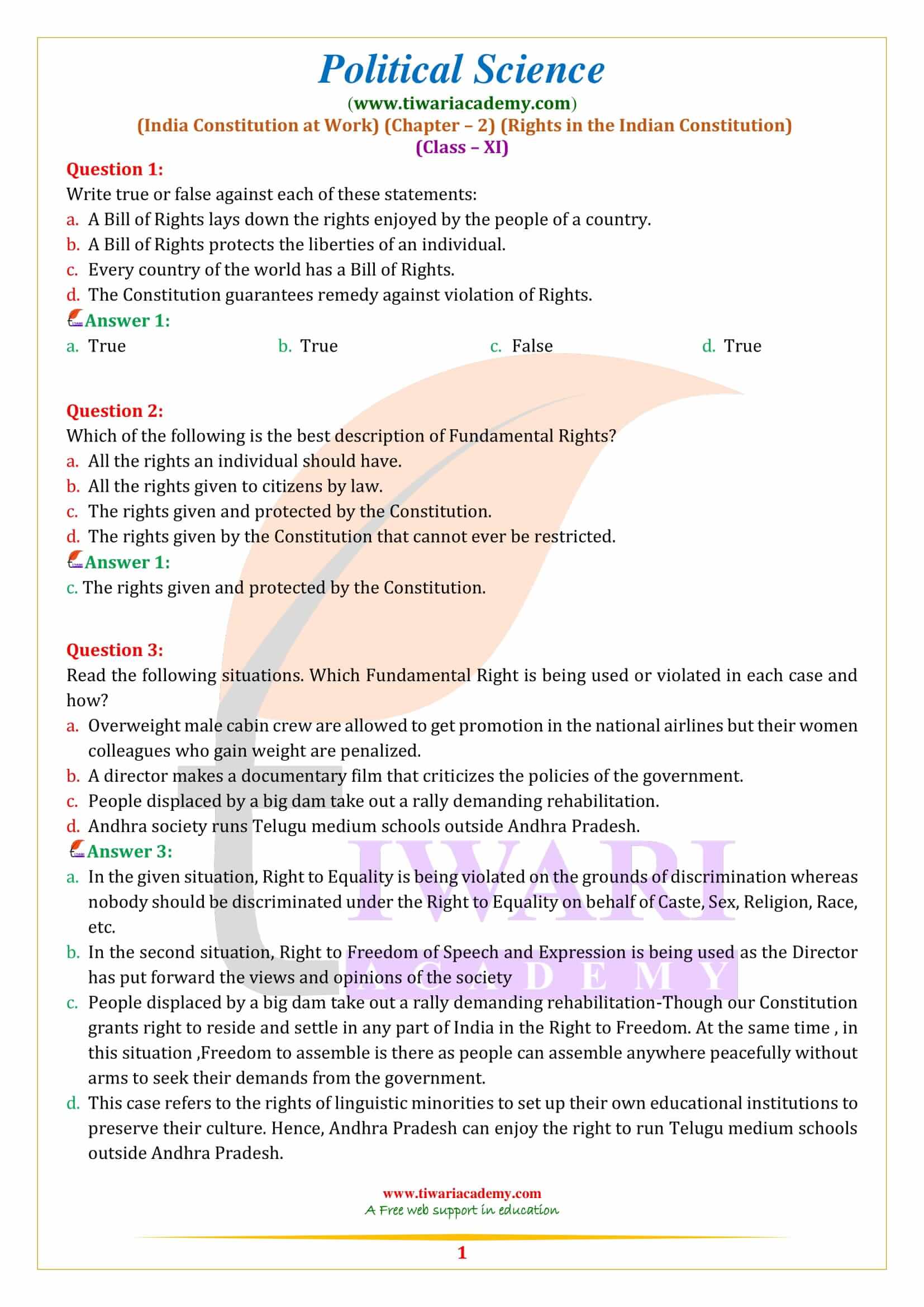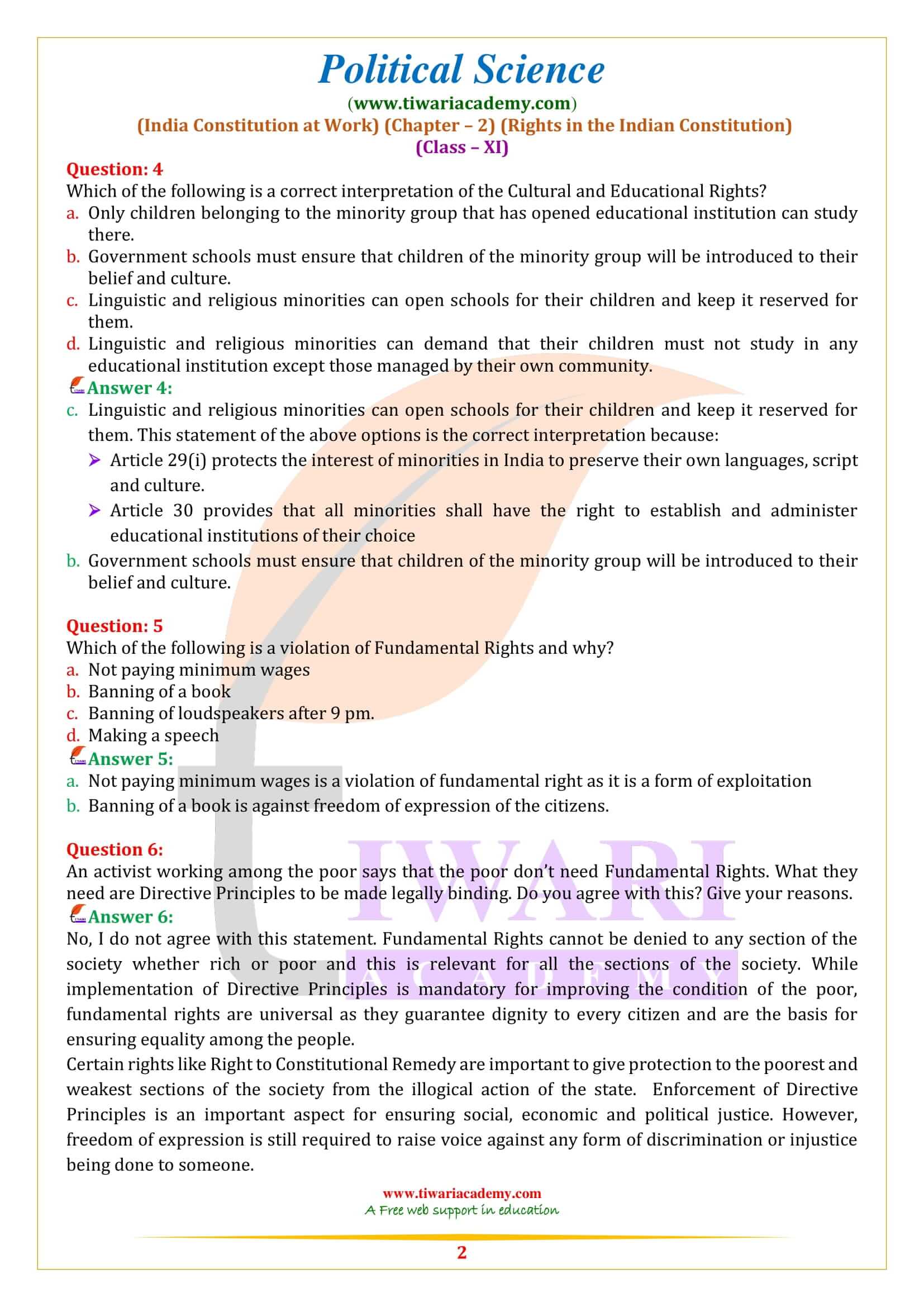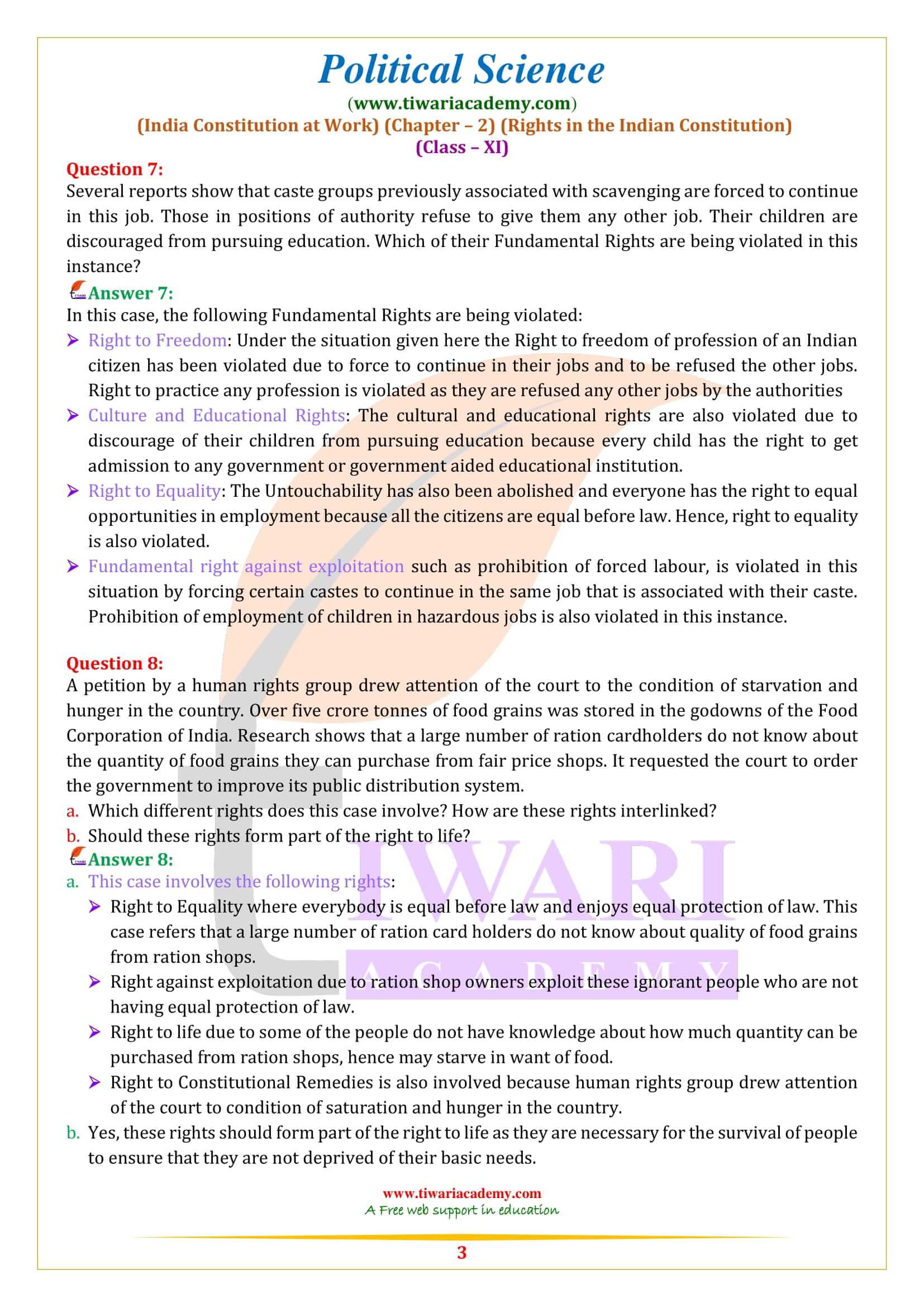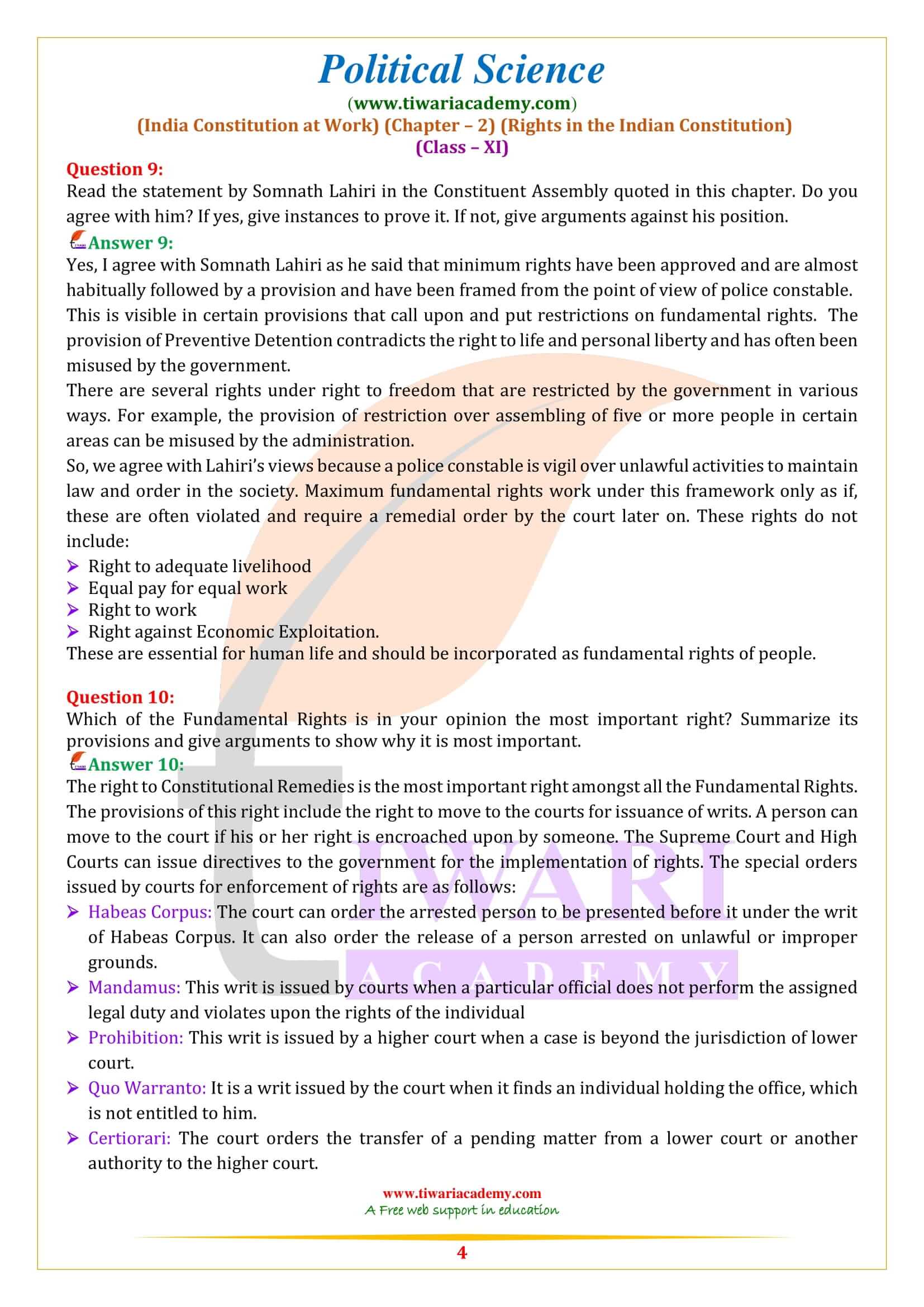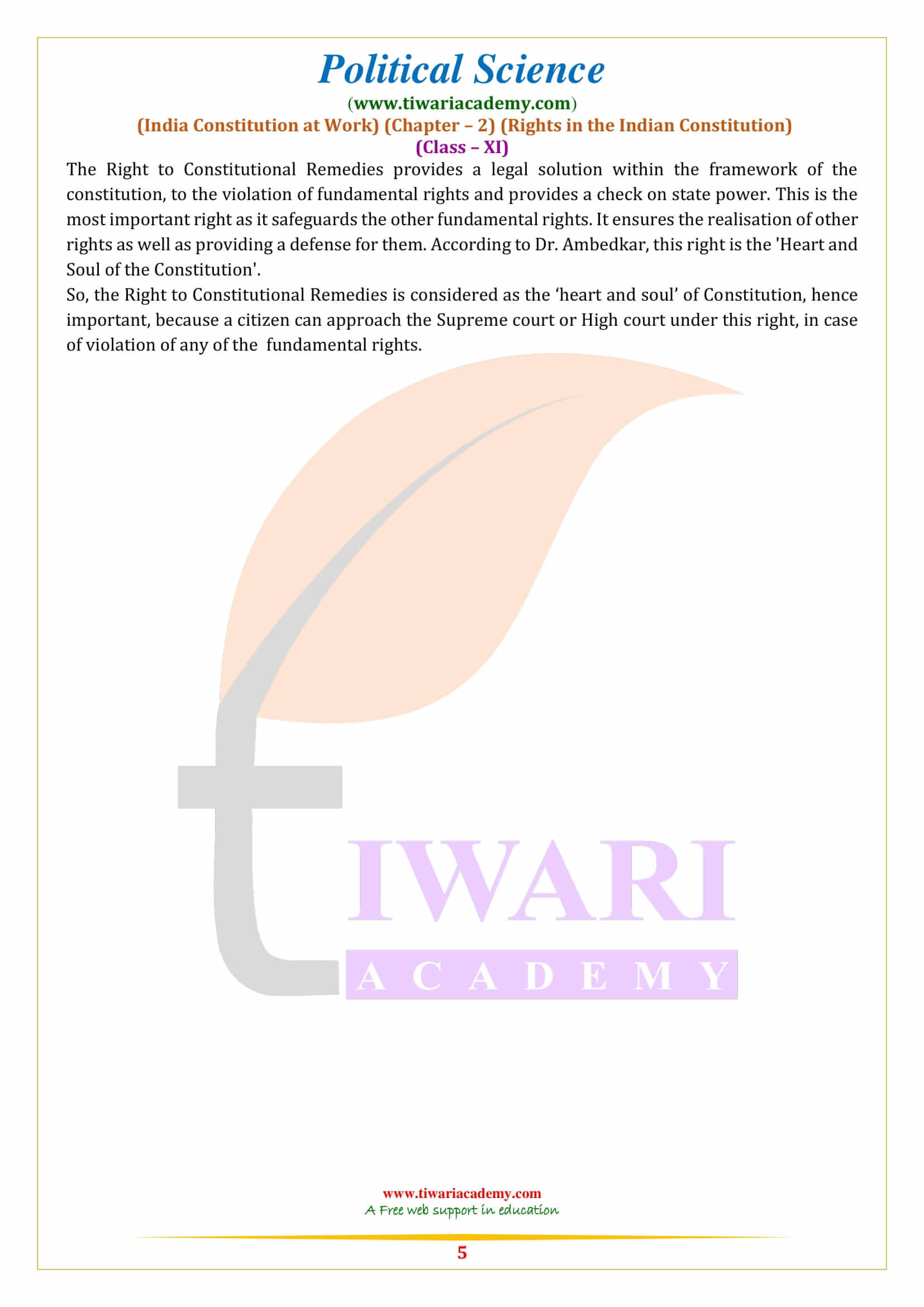NCERT Solutions for Class 11 Political Science Chapter 2 Rights in the Indian Constitution in Hindi and English Medium updated for CBSE and State board students session 2025-26. Get here question answers of Indian Constitution at Work given in chapter 2 of class 11 Political Science.
NCERT Solutions for Class 11 Political Science Chapter 2
An activist working among the poor says that the poor don’t need Fundamental Rights. What they need are Directive Principles to be made legally binding. Do you agree with this? Give your reasons.
No, I do not agree with this statement. Fundamental Rights cannot be denied to any section of the society whether rich or poor and this is relevant for all the sections of the society. While implementation of Directive Principles is mandatory for improving the condition of the poor, fundamental rights are universal as they guarantee dignity to every citizen and are the basis for ensuring equality among the people.
Certain rights like Right to Constitutional Remedy are important to give protection to the poorest and weakest sections of the society from the illogical action of the state. Enforcement of Directive Principles is an important aspect for ensuring social, economic and political justice. However, freedom of expression is still required to raise voice against any form of discrimination or injustice being done to someone.
Several reports show that caste groups previously associated with scavenging are forced to continue in this job. Those in positions of authority refuse to give them any other job. Their children are discouraged from pursuing education. Which of their Fundamental Rights are being violated in this instance?
In this case, the following Fundamental Rights are being violated:
- Right to Freedom: Under the situation given here the Right to freedom of profession of an Indian citizen has been violated due to force to continue in their jobs and to be refused the other jobs. Right to practice any profession is violated as they are refused any other jobs by the authorities
- Culture and Educational Rights: The cultural and educational rights are also violated due to discourage of their children from pursuing education because every child has the right to get admission to any government or government aided educational institution.
- Right to Equality: The Untouchability has also been abolished and everyone has the right to equal opportunities in employment because all the citizens are equal before law. Hence, right to equality is also violated.
- Fundamental right against exploitation such as prohibition of forced labour, is violated in this situation by forcing certain castes to continue in the same job that is associated with their caste. Prohibition of employment of children in hazardous jobs is also violated in this instance.
Which Fundamental Right is being used or violated if overweight male cabin crew are allowed to get promotion in the national airlines but their women colleagues who gain weight are penalized.
In the given situation, Right to Equality is being violated on the grounds of discrimination whereas nobody should be discriminated under the Right to Equality on behalf of Caste, Sex, Religion, Race, etc.
Which Fundamental Right is being used or violated if a director makes a documentary film that criticizes the policies of the government.
In the second situation, Right to Freedom of Speech and Expression is being used as the Director has put forward the views and opinions of the society.
Which Fundamental Right is being used or violated in people displaced by a big dam take out a rally demanding rehabilitation.
People displaced by a big dam take out a rally demanding rehabilitation-Though our Constitution grants right to reside and settle in any part of India in the Right to Freedom. At the same time , in this situation ,Freedom to assemble is there as people can assemble anywhere peacefully without arms to seek their demands from the government.
Which Fundamental Right is being used or violated in Andhra society runs Telugu medium schools outside Andhra Pradesh.
This case refers to the rights of linguistic minorities to set up their own educational institutions to preserve their culture. Hence, Andhra Pradesh can enjoy the right to run Telugu medium schools outside Andhra Pradesh.
